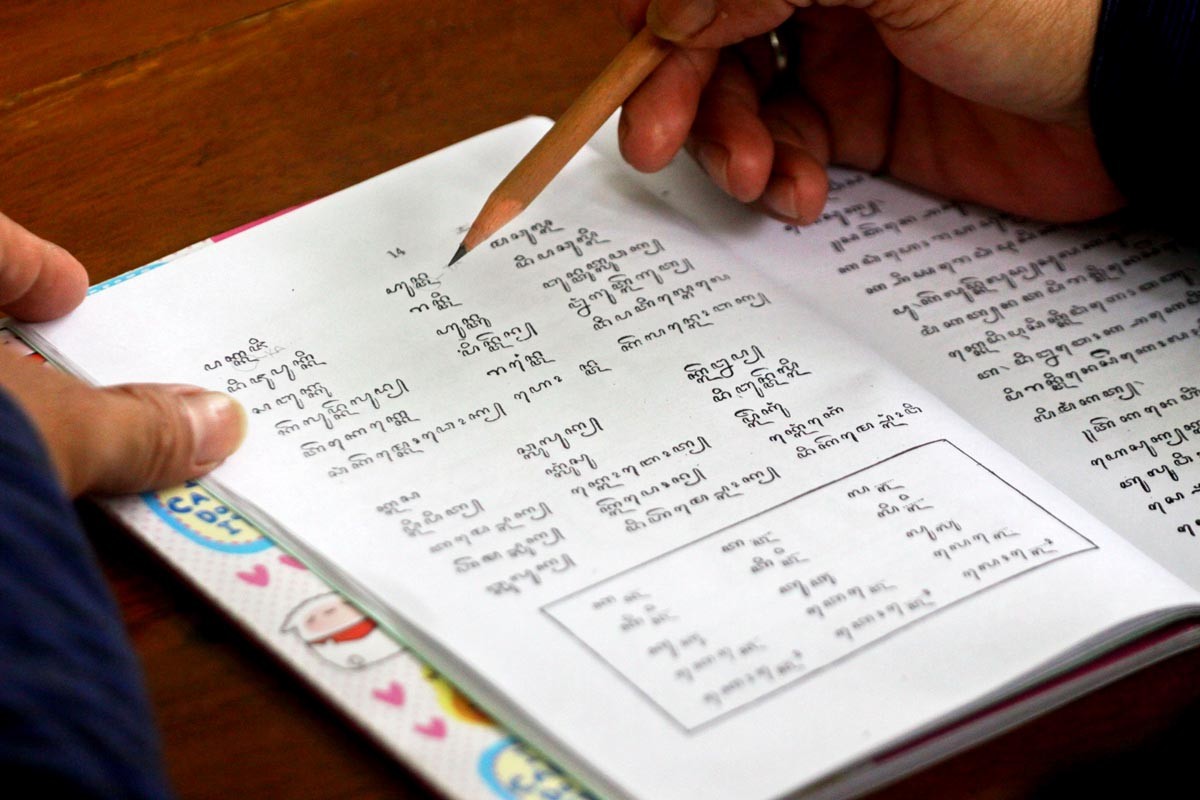Popular Reads
Top Results
Can't find what you're looking for?
View all search resultsPopular Reads
Top Results
Can't find what you're looking for?
View all search resultsTaking action to preserve Javanese language
As a country with a documented 652 local languages, Indonesia has lost 11 local languages, with 19 on the brink of extinction, according to the Education and Culture Ministry.
Change text size
Gift Premium Articles
to Anyone
A
youth community in Yogyakarta and a single mother in Jember in East Java have taken different approaches to expressing their love for Javanese culture.
When cycling around Yogyakarta, the beating heart of Javanese culture, Cahyo Ramadhani cringes at the many Javanese typos that he discovers here and there.
In alleys, he often sees the warning sign Ojo Ngebut (Do not drive too fast).
“It should be aja instead of ojo although it is pronounced ojo,” he said.
For Cahyo, the mistake is serious because it proves that even native Javanese speakers, including those who live in major Javanese cities such as Yogyakarta, cannot spell Javanese words correctly.
The country with the second-largest number of local languages in the world with a documented 652 local languages, Indonesia has lost 11 local languages, with 19 on the brink of extinction, according to the Education and Culture Ministry.
Cahyo understands that many people still speak Javanese, but he argues that people’s poor spelling is a threat to the language. Like Indonesian and English, it has a set of rules that they have to obey if they want to write it.
Read also: Javanese language should be used on daily basis: Governor
Cahyo is a co-founder of the Wikipédia Jawa community. Founded in May 2017 in Yogyakarta, the group encourages people in the province to learn Javanese.
The community provides a free writing program called WikiLatih at its office, Omah Wikipédia, to encourage people to learn to speak Javanese and write the language using the Roman and Javanese alphabets.
The participants then practice by translating Indonesian or English Wikipedia content into Javanese and uploading their work to the Wikipédia Jawa website.
Wikipédia Jawa’s content is not just about batik, gamelan and wayang (Javanese puppets) but also about contemporary pop-culture from K-Pop to Hollywood movies, and so far it has published over 1,500 Javanese articles.
For the community, small details such as the acute accent (´) matter. Therefore, whether intentionally or not, replacing é or è with e is wrong.
For example, the words cemèng and cemeng are different in pronunciation and meaning because the former means kitten while the latter means black.
Read also: Against all odds, Javanese-language film ‘Yowis Ben’ attracts 800,000 viewers
Like the Wikipédia Jawa community, 42-year-old teacher Eni Siti Nurhayati also has a deep concern for proper Javanese.
Teaching at MTsN 9 Jember Islamic junior high school in Jember, East Java, she runs a journalistic extracurricular activity to train her students to write short stories in Javanese. She then sends their work to Javanese magazines Jaya Bayaand Panjebar Semangat.
“Every time their story gets published in the Ajar Ngarang [Learn to Write] section, they get Rp. 50,000 [US$3.61]. They then become more enthusiastic about writing,” she said.
The 42-year-old mother of two began writing in 2012 after her husband of 15 years cheated on her. Since then, she has published five anthologies of Javanese short stories.
Eni recalled that after learning she had divorced her husband, her friends and family were shocked and bombarded her with questions.
For her, to answer their questions was painful. She therefore wrote a short story titled Layang Kanggo Koncoku Lawas (Letter for my Old Friend), which is part of her first anthology, Kadhung Kepencut (Already in Love).
“I asked them to read it. That is my way of communicating,” she said. “They finally understood the problems that drove me to end my marriage.”
Eni sent the short story to Panjebar Semangat and was surprised when it got published. She then became more addicted to writing.
She admitted she did not have many readers and her books were hard to sell. But this has never discouraged her from writing.
“It is not just about money. Somehow I managed to move on after my divorce because of writing,” she said.
Like the Wikipédia Jawa community, Eni also posts her works on Facebook with a simple purpose.
“I just do not want Javanese literature to die,” she said.











